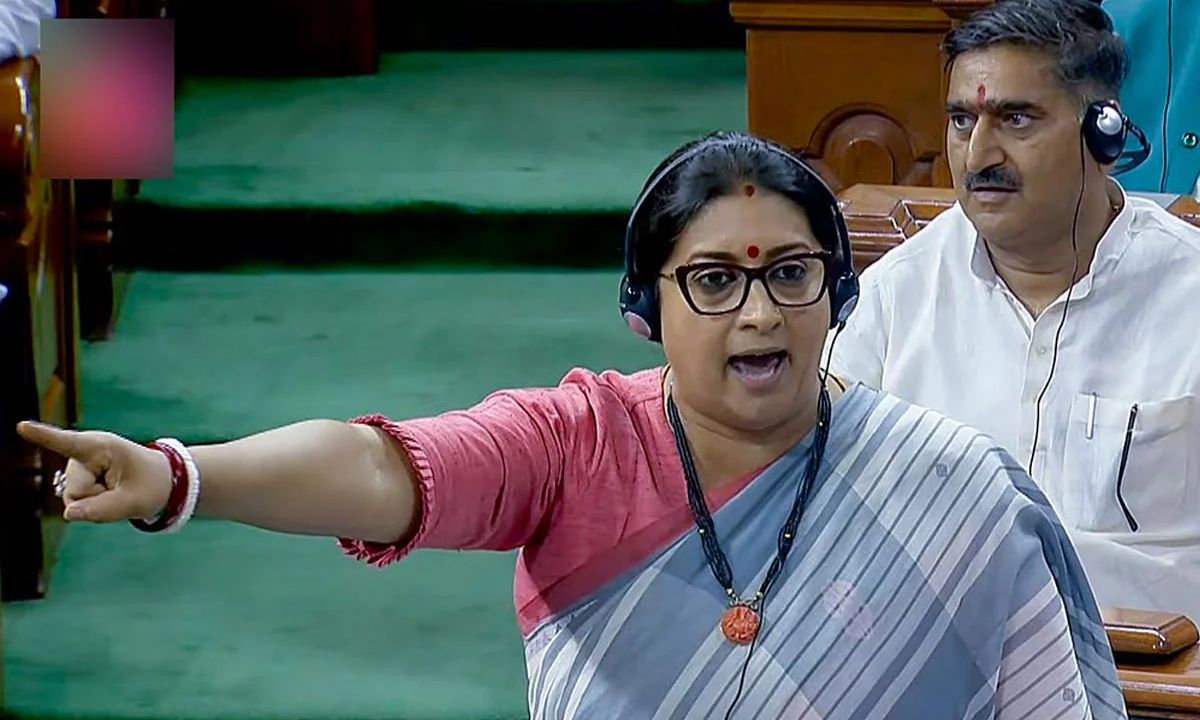In a recent interview with ANI, Union Minister Smriti Irani delved into the controversy surrounding her stance on mandatory paid period leave for women employees. The controversy arose after her earlier statement in Parliament, asserting that menstruation is not a handicap and that the government has no plans for a mandatory period leave policy. Irani raised pertinent questions about the practical implications and potential consequences of implementing such a policy.
Also Read: Twitter Lashes Out At Smriti Irani For Opposing Paid Period Leaves: “Our WCD Minister Lacks Empathy, Understanding”
During the interview, Irani emphasized the potential challenges faced by women who might choose not to take the proposed period leaves. She questioned the implications of reporting one’s menstrual cycle to HR and accounts, especially for single women. She expressed concerns about potential harassment and discrimination, particularly in workplaces with a significant female workforce. Irani argued that instead of creating more barriers, the focus should be on encouraging greater participation of women in the workforce, both in factories and corporate houses.
Responding to a question posed by RJD MP Manoj Jha in the Rajya Sabha, Irani reiterated her belief that menstruation is a natural aspect of a woman’s life journey, not a handicap. She highlighted the need to avoid proposing policies that might result in the denial of equal opportunities for women. Irani’s statements have sparked criticism, with Telangana leader K Kavitha expressing disappointment and labeling Irani’s remarks as “appalling.”
Also Read: Hautetalk: Smriti Irani Opposes Paid Period Leave As “Menstruation Isn’t Handicap”, But Cramps Are Crippling!
Irani addressed the controversy, acknowledging that her comments were intended to provoke and attract attention. She clarified that the provocative nature of the question, which inquired about the government’s menstruation leave policy for LGBTQIA+, was intentional. Irani defended her use of the term “handicap,” stating that it was synonymous with “impediment” and not intended to convey disability. She also pointed out the irony of criticism coming mostly from men and humorously mentioned someone suggesting the removal of her uterus over the issue.
The debate over period leave policies continues to be a subject of societal discourse, with Irani’s perspective adding a nuanced layer to the ongoing conversation. As the discussions unfold, the key challenge remains finding a balance that supports women’s well-being without inadvertently creating additional hurdles in the professional realm.

